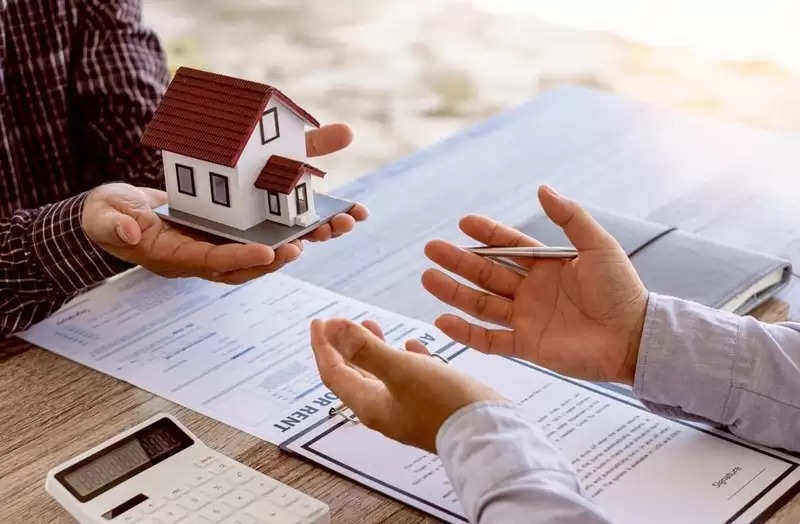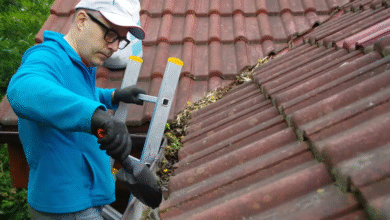What Every Property Owner Should Know About Gas Safety

Owning a property comes with many responsibilities, and one of the most critical areas to understand is gas safety. Whether you own a single-family home, a flat, or a block of rental units, gas systems and appliances must be properly managed to ensure the safety of everyone in the building. Poor gas safety practices can lead to dangerous situations such as gas leaks, carbon monoxide poisoning, and even explosions. This makes it essential for all property owners to understand their duties, legal requirements, and how to maintain a safe living environment.
For those living or managing properties in the capital, understanding local compliance is equally important. One such requirement includes obtaining Gas Safety Certificates London, which are essential for ensuring your property meets safety standards. In this blog, we will explore everything property owners should know about gas safety, from legal obligations to practical maintenance tips.
Understanding the Dangers of Unsafe Gas Systems
Gas is widely used for heating and cooking across the UK, but it must be handled carefully. When gas systems are faulty or poorly maintained, they can become dangerous. Leaks from damaged pipes, malfunctioning appliances, or blocked vents can result in the release of harmful gases, such as carbon monoxide. Carbon monoxide is colourless and odourless, making it difficult to detect without a working alarm.
Exposure to this gas can cause symptoms like headaches, nausea, dizziness, and in severe cases, can be fatal. In addition to health risks, gas leaks also carry a high risk of fire or explosion, especially in enclosed spaces. This is why gas safety should never be overlooked by property owners.
Legal Responsibilities for Property Owners
All property owners have legal responsibilities when it comes to gas safety, especially landlords who rent out properties. The Gas Safety (Installation and Use) Regulations 1998 require landlords to ensure that all gas appliances, fittings, and flues are safe. These regulations also require that an annual safety check be carried out by a Gas Safe registered engineer.
After each inspection, a landlord must provide tenants with a copy of the gas safety record within 28 days of the check being completed, or before a new tenant moves in. Failure to meet these responsibilities is not only a legal offence but could also put tenants’ lives at risk.
Homeowners are not legally required to carry out annual gas safety checks in the same way landlords are, but it is still strongly recommended. Regular maintenance by a registered engineer can help identify and fix problems before they become dangerous.
What Is a Gas Safety Certificate?
A Gas Safety Certificate, also known as a CP12 certificate, is a document issued by a Gas Safe registered engineer after a successful inspection of all gas appliances and systems in a property. This certificate confirms that the installations meet current safety standards and are safe to use.
During the inspection, the engineer will check gas appliances such as boilers, hobs, ovens, and any gas fires. They will also examine flues, ventilation, and pipework to ensure everything is functioning properly. If an appliance is found to be unsafe, it will be marked as such and should not be used until repaired or replaced.
The Role of the Gas Safe Register
The Gas Safe Register is the official list of engineers who are qualified to work legally on gas appliances in the UK. It replaced CORGI as the UK’s gas registration body in 2009. Always ensure that any engineer you hire for gas work is listed on the Gas Safe Register.
You can check if an engineer is registered by asking to see their Gas Safe ID card or by visiting the official Gas Safe Register website. This helps you confirm that the person is qualified to carry out the type of work you need.
Maintaining Gas Appliances Safely
Routine maintenance is a crucial part of gas safety. Property owners should schedule regular servicing for all gas appliances. Even if something appears to be working fine, hidden issues can arise over time. For example, a boiler might be producing carbon monoxide without any visible symptoms.
A qualified engineer can clean, test, and adjust appliances to make sure they are operating efficiently and safely. This not only protects the occupants of the property but can also extend the lifespan of your gas systems and improve energy efficiency.
Installing Carbon Monoxide Alarms
Since carbon monoxide is hard to detect, the installation of CO alarms is essential. These alarms work like smoke detectors but are designed specifically to sense the presence of carbon monoxide. Alarms should be installed in every room with a gas appliance and checked regularly to ensure they are working properly.
In some areas and property types, carbon monoxide alarms are now legally required. Even if it’s not a legal obligation for your property, it is a simple and affordable way to enhance safety.
What to Do in Case of a Gas Leak
Every property owner should have a basic understanding of what to do if there is a suspected gas leak. Signs of a leak include a strong smell of gas, a hissing sound near gas appliances or pipes, or physical symptoms like headaches and dizziness.
If you suspect a gas leak:
- Open all doors and windows to ventilate the area.
- Do not turn on any electrical switches or appliances.
- Evacuate the property immediately.
- Call the National Gas Emergency Service on 0800 111 999.
This service is available 24/7 and should be contacted even if the leak seems small. It is better to be safe and cautious than to risk harm.
Renovations and Gas Work
If you’re planning renovations or new installations that involve gas, such as a new kitchen or boiler system, it’s important to involve a Gas Safe registered engineer from the start. Any structural changes could affect existing gas installations, and it is your responsibility as the property owner to ensure all work is compliant with safety regulations.
Additionally, if you’re selling your property, prospective buyers may ask to see evidence of gas safety checks or a current certificate. Keeping your documentation in order can make the process smoother.
Conclusion
Gas safety is not something to take lightly. It requires ongoing attention, legal compliance, and a clear understanding of your responsibilities as a property owner. Whether you’re living in the property yourself or renting it out to others, ensuring that gas appliances are regularly maintained and inspected can prevent dangerous incidents and save lives.
Always use engineers who are registered with the Gas Safe Register and keep a record of all maintenance and inspections. By staying proactive about gas safety, you protect both your property and the people who live in it.If you want to stay updated with posts like this, please follow us on Western Business.



